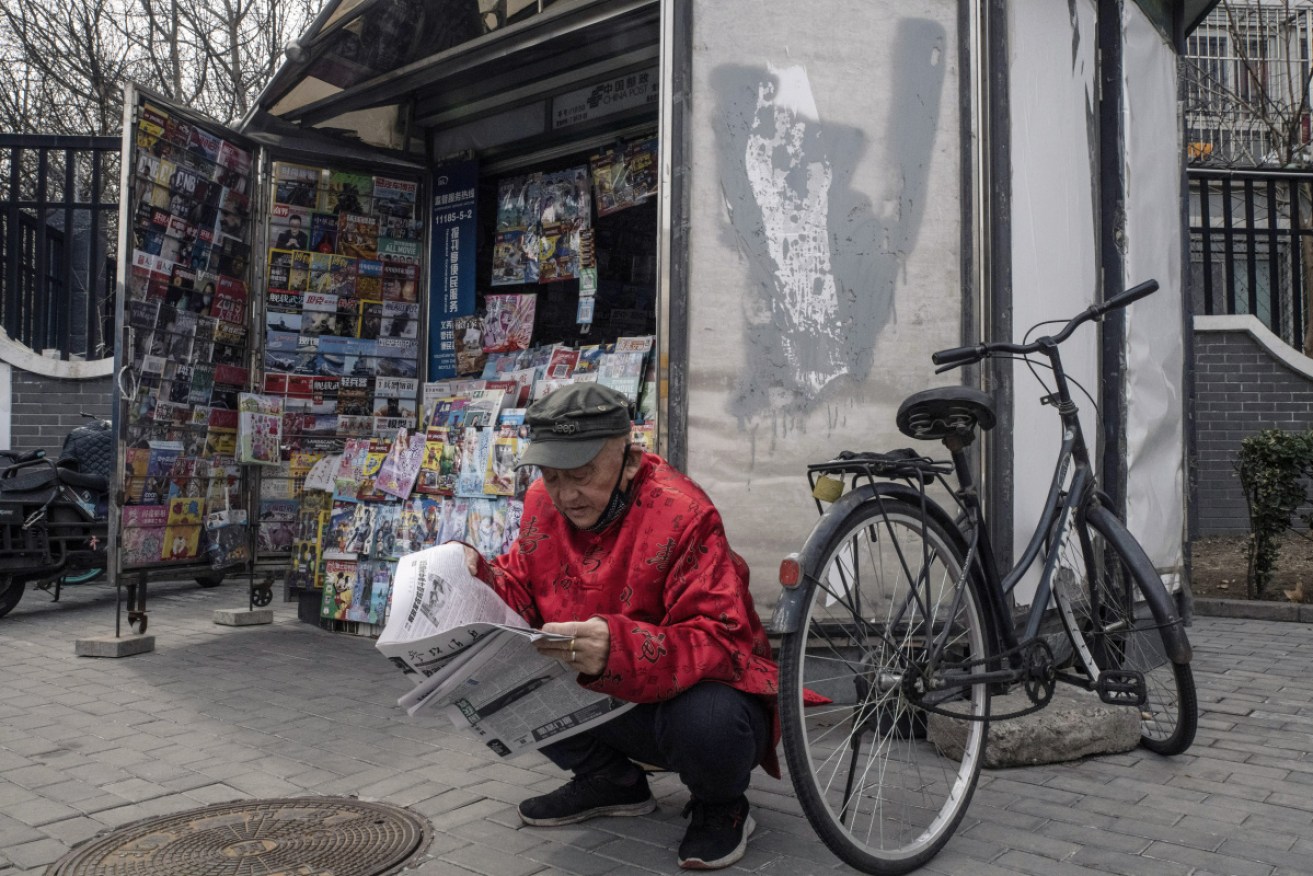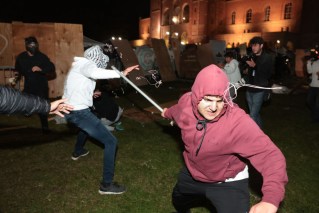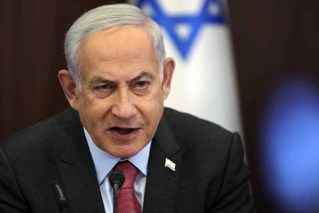While the world fights coronavirus, Trump is battling with defensive China

A news stand in Beijing on Wednesday. Photo: The New York Times
An increasingly rancorous rivalry between the United States and China entered a new phase Wednesday as Beijing accused the Trump administration of starting a diplomatic clash that led it to expel almost all U.S. journalists from three newspapers.
The Chinese government cast its expulsion of the journalists from The New York Times, The Wall Street Journal and The Washington Post as necessary to defend Beijing against what it perceived as an ideological campaign by the United States to impose its values on China. Around a dozen reporters could be required to leave, in a move that Beijing said was reciprocation for the United States’ forcing out of about 60 Chinese reporters this month.
“The United States cannot proceed from ideological prejudice, use its own standards and likes and dislikes to judge the media of other countries, let alone suppress the Chinese media unreasonably,” Geng Shuang, a Foreign Ministry spokesman, said at a news conference in Beijing on Wednesday.
The expulsions, not seen to such an extent in recent history, point to the governing Communist Party’s growing resolve to strike back in all aspects of what is quickly becoming a bare-knuckled competition with the United States. Over the past year, tensions have escalated over issues ranging from trade deficits to technological capacity and military dominance, with bruising effect on U.S. and Chinese companies, business executives, and even university students and academics.
The dispute over media access underlines how this new era of great power rivalry has extended into the marketplace of ideas. It not only signals a more muscular approach to foreign policy in China but also accords with the party’s tightening grip over information under Xi Jinping, the country’s authoritarian leader.
The expulsions “will definitely have a big influence” on relations between the two countries, said Zhan Jiang, a retired journalism professor at Beijing Foreign Studies University. “We’ve never really seen anything like this in the past 40 years. This shows the relations between the two sides have fallen into a deadlock, with neither side retreating.”
Under Xi, the news media has come under an increasingly tight grip, and foreign reporters who displease the authorities have been punished with visa denials. In recent weeks, as the coronavirus spread through China, the government has cracked down on domestic and foreign reporting, muzzling medical professionals and censoring and removing reports and commentaries online that have challenged the official narrative.
LIVE: Press Briefing with Coronavirus Task Force https://t.co/3WQV4egsWc
— The White House 45 Archived (@WhiteHouse45) March 18, 2020
On Tuesday, China went even further, requiring all U.S. journalists for the three newspapers whose credentials expire by the end of the year to turn in their press cards within 10 days. It said they would not be allowed to continue working as journalists in China.
In an unusual move, it said the Americans were also forbidden from working as journalists in Macao or Hong Kong, two semiautonomous Chinese territories that have traditionally had greater protections for press freedom than the mainland.
Beijing has said that the expulsions were a response to the Trump administration’s decision to limit the number of Chinese citizens from five state-controlled media outlets who could work in the United States to 100, which forced the expulsion of about 60.
On Wednesday, the Chinese government indicated it was prepared to take more measures if needed.
“We urge the United States to immediately change its course, correct mistakes, and stop political suppression and unreasonable restrictions on Chinese media,” said Geng, the Foreign Ministry spokesman.
“If the United States insists on taking its own course, compounding mistakes, China will be forced to take further countermeasures,” he added.
The U.S. news outlets criticised the Chinese government’s decision. Secretary of State Mike Pompeo called the expulsions “unfortunate” and said he hoped China would reconsider.
Pompeo maintained there was a fundamental difference between the expelled U.S. reporters, who are employed by independent media outlets, and the expelled Chinese journalists, who work for a state propaganda machine.
In its official rhetoric, the government has cast its decision as a matter of diplomacy. But its own comments and reports in state-run news outlets indicated that Beijing, which often accuses the Western media of bias, also takes issue with the three U.S. news outlets’ reporting on China.
“We reject ideological bias against China, reject fake news made in the name of press freedom, reject breaches of ethics in journalism,” tweeted Hua Chunying, a Chinese Foreign Ministry spokeswoman.
An article from The Global Times, a stridently nationalistic tabloid controlled by the party, criticised the The New York Times’ coverage of the coronavirus outbreak, the months-long anti-government protests in Hong Kong, and the Chinese authorities’ internment of ethnic-minority Muslims in far western Xinjiang. The paper’s coverage of the epidemic, the article said, was “aiming to attack China’s political system and smear China’s efforts” to contain the virus.
It said reports by The Times and other outlets about the government’s policies in the Xinjiang region had “smeared and attacked China without basis.”
- Read more: China harassing Uighur Muslims in Australia

The CCP claims Uyghurs are living a ‘free and normal’ life in the camps. Photo: Chinese TV
China also said it was requiring the three outlets as well as Time magazine and Voice of America to disclose details of their staff, assets and operations in China.
The action would affect at least 13 U.S. journalists but the number could be higher, the Foreign Correspondents’ Club of China said in a statement Wednesday.
The organisation said the expulsion “diminishes us in number and in spirit, though not in our commitment to vigorously cover China. There are no winners in the use of journalists as diplomatic pawns by the world’s two pre-eminent economic powers.”
The Global Times echoed this in an editorial Wednesday that accused Washington of starting the tit-for-tat.
“As a Chinese media, we regret that the conflict between China and the United States has escalated due to political differences,” it said. Both Chinese and U.S. journalists, it added, were “implicated by political frictions between China and the United States.”
The latest developments follow the expulsion of three Journal reporters over a headline last month, “China Is the Real Sick Man of Asia,” on an op-ed column about the country’s coronavirus response efforts.
In recent days, The People’s Daily, a Communist Party mouthpiece, and China Daily, a state-run newspaper, posted messages that circulated widely on China’s Twitter-like forum Weibo targeting The Times for what they called “double standards” in its tweets about the lockdown imposed in China and in Italy to curb the spread of the virus.
Some questions remained unanswered, including how and whether the Hong Kong government would take further steps to enforce Beijing’s expulsion. Hong Kong operates under a political formula known as “one country, two systems,” which promises the Chinese territory a high degree of autonomy, including independent courts, a free news media and extensive protections of civil liberties.
Many global news organisations use Hong Kong as headquarters for the Asia region. Under the Basic Law, Hong Kong’s mini-constitution, the region has jurisdiction over immigration matters. If Hong Kong refused to allow the journalists to work in the city, it would be seen by some critics as the latest sign of eroding freedoms in the territory.
On Wednesday, Geng said the action taken by Beijing was diplomatic in nature, and thus fell under the central government’s authority, not that of Hong Kong.
But some of Hong Kong’s pro-democracy lawmakers rejected the argument and threatened to request a judicial review if any of the U.S. reporters were turned away at Hong Kong’s border.
“Carrie Lam doesn’t have to follow exactly what Beijing says,” said Dennis Kwok, a pro-democracy lawmaker who represents Hong Kong’s legal sector, referring to Hong Kong’s leader. “If she has any integrity left, she can say this is Hong Kong and we have freedom of the press.”
Claudia Mo, another lawmaker, said Beijing was using the situation as an opportunity to “shut down the free flow of information.”
“Rule of law is quite dead in Hong Kong, we knew,” Mo said in a news conference in Hong Kong. “Free flow of information, they’re telling us, forget about it.”
-The New York Times








